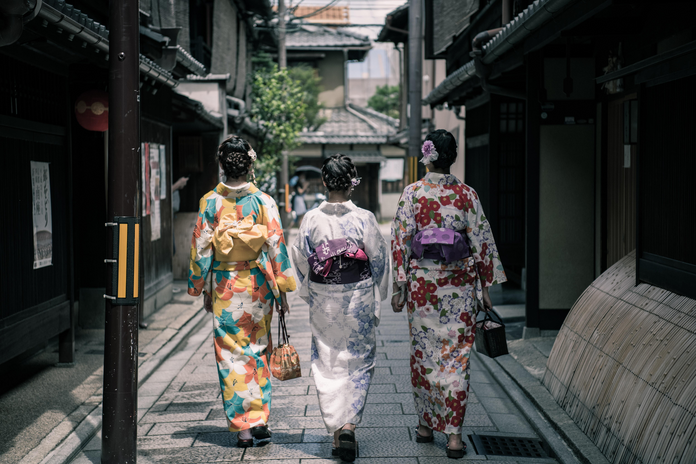In Japan, kimonos are sacred clothing pieces that women hand down to their daughters, generation after generation. In the West though, the “kimono” is stripped of its voluminous layers and formal silk belt, making it a “casual” jacket that is often found on the bodies of thin, white models. In other words, kimono jackets are intentionally adapted to fit Western beauty standards.
But you might be wondering—how exactly does this relate to the appropriation of Japanese culture?
Well, kimonos first gained traction in Europe as “exotic” Japanese clothing. Then, these European merchants convinced Japanese kimono designers to modify kimonos to better suit Western tastes. Most of these modifications made the kimonos more risqué with tighter sleeves, shorter length, and the kimonos eventually came to be called “nightgowns” to represent this change.
In sum, this eroticization of East Asia and sexualization of Asian feminine clothing is deeply ingrained in “modified kimonos,” or kimono jackets.
The fact that Japan had to modify its own culture to be included in the conversation of global fashion also highlights imbalances in Western and Eastern power.
Don’t get me wrong, I love seeing cultural exchanges like tourists trying on traditional kimonos. What I can’t tolerate is cultural appropriation; when people take this sacred kimono and turn it into a jacket for casual use.
The line between cultural exchange and cultural appropriation can be blurry, especially when it comes to fashion. My advice for you is to properly check the history behind the culture you are borrowing from, especially in regards to your privilege and identity!




